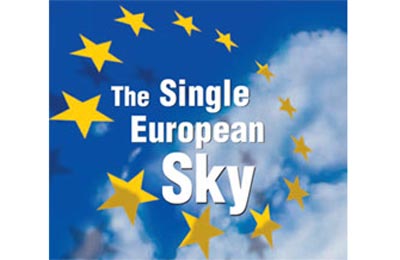
Iata welcomes Single Sky plan
Geneva, June 12, 2013
The International Air Transport Association (Iata) welcomed European Commission (EC) proposals to strengthen the legislative basis for the Single European Sky (SES) recently.
The EC proposals are in response to the failure of European states to make progress towards the SES and its goals of improvement in safety by a factor of 10, a 10 per cent reduction in aviation’s environmental impact, a 50 per cent reduction in air traffic management costs and a three-fold increase in capacity, said a statement.
The efficiencies generated will be a catalyst for jobs and growth, critical to Europe as it struggles to revive its stagnating economy, it said.
“The Commission shares the industry’s frustration with the failure of European states to progress the SES. Every year that SES languishes in limbo is a 5 billion euros ($6.6 billion) knock to European competitiveness and costs the environment 8.1 million tonnes of wasted carbon emissions,” said Tony Tyler, Iata’s director general and CEO.
In February, airspace users (represented by Iata, the Association of European Airlines, and the European Regions Airline Association) published 'A Blueprint for a Single European Sky' which set out key SES objectives. These included the establishment of an independent economic regulator; a reduction in Air Traffic Control Centers from 63 to not more than 40; and the modernisation of the ATM system.
The EC proposals include several elements which are well aligned with the blueprint, such as the designation of an independent Performance Review Body, unbundling of support services, greater independence and competence for Civil Aviation Authorities, and the need for more consultation by Air Navigation Service Providers on capital expenditure.
Iata noted three specific concerns with the EC proposals, the new performance review body must have strong powers to enforce targets; the clearer role definition and enhanced capabilities of aviation authorities must reduce duplication and not increase costs; and changing of the definition of Functional Airspace Block (Fab) to ‘an industrial partnership’ gives rise to concerns that states could avoid prosecution for non-compliance with Fab requirements.
IATA also expressed disappointment with strikes and demonstrations called for by the European Transport Workers Federation (ETF), in response to this much-needed modernisation of European air traffic management. - TradeArabia News Service







